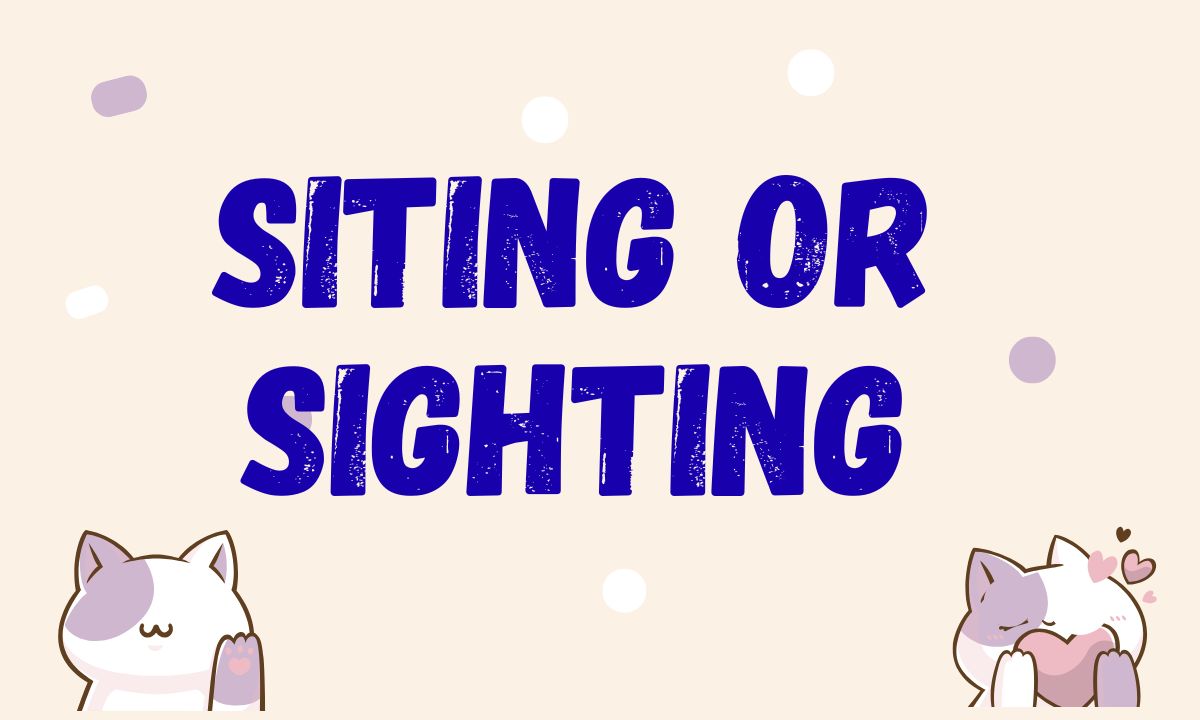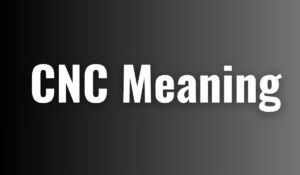The confusion between siting or sighting often leaves many wondering which word to use in writing or speech. Although they sound the same, their meanings are entirely different. “Siting” relates to positioning or locating something, while “sighting” refers to seeing or observing something. In English grammar, these two homophones frequently cause mix-ups among students and professionals alike.
Understanding their differences not only improves your grammar accuracy but also enhances your communication skills. This article explores definitions, examples, key differences, and simple tips to help you choose the correct term every time.
Understanding “Siting” and Its Usage
The word siting comes from the noun site, meaning a location or place. When used as a verb, siting means choosing or establishing a position for something. For example, engineers might talk about siting a new bridge or power plant. It’s commonly used in contexts involving construction, architecture, or land development. Think of siting as “placing or positioning something on the ground.”
Example Sentences:
- The government is siting a new airport outside the city.
- The building was poorly sited due to limited space.
Grammar Tip: If the sentence is about where something is located or built, “siting” is correct.
Understanding “Sighting” and Its Usage
In contrast, sighting comes from the word sight, meaning “to see.” It describes the act of seeing or observing something, often something rare, exciting, or unexpected. For example, you might say, There was a sighting of a rare bird in the park.
Example Sentences:
- There was a sighting of dolphins near the harbor.
- The police reported a sighting of the missing car yesterday.
Fun Fact: “Sighting” can also be used as a verb in technical contexts, such as “sighting-in a rifle,” which means adjusting its aim for accuracy.
Remember: If it’s about seeing or noticing something, “sighting” is the right word.
Siting vs Sighting: The Core Differences
While both words are pronounced the same, their meanings differ greatly. Here’s a clear comparison to make it easier to remember:
| Aspect | Siting | Sighting |
| Root Word | Site (location) | Sight (vision) |
| Meaning | Placing or positioning something | Seeing or observing something |
| Common Contexts | Construction, architecture, planning | Observation, nature, reporting |
| Example | The company is siting a new office. | A rare sighting of an eagle occurred. |
Memory Trick:
👉 Siting = Site (place)
👉 Sighting = Sight (see)
Pro Tip: If you can replace the word with “seeing,” use sighting. If you can replace it with “placing,” use siting.
Common Mistakes and How to Avoid Them
A major reason people confuse siting and sighting is that they are homophoneswords that sound alike but differ in spelling and meaning. Another common mistake is mixing them with “citing,” which means quoting or referencing a source.
Here’s how to avoid confusion:
- Think of the action. Are you placing or seeing?
- Visualize the root word. “Site” = place, “Sight” = see.
- Proofread your sentences. Grammar tools like Grammarly or Sapling can detect the wrong usage.
Incorrect: We are sighting a new power station.
Correct: We are siting a new power station.
Making this distinction helps you write with clarity and confidence.
Everyday Usage Examples
Let’s explore how both words appear in real-life situations:
Siting Examples:
- The siting of wind turbines requires detailed planning.
- Engineers debated the siting of the new highway.
Sighting Examples:
- Tourists were thrilled by the sighting of a rare whale.
- There have been several UFO sightings this year.
Quick Exercise:
Try filling in the blanks
- The team reported a strange _______ near the forest.
- The mayor approved the _______ of the new stadium.
(Answers: 1. sighting, 2. siting)
This simple practice helps strengthen your understanding of both words.
How to Remember the Difference
If you often mix them up, here are easy tricks to help you remember:
- Siting involves sites, or places.
- Sighting involves sights, or things you see.
- Use Siting = Site (location) and Sighting = Sight (vision) as your go-to formula.
Another helpful way is through association:
“If you see something it’s a sighting. If you place something it’s a siting.”
Over time, this rule will become second nature whenever you write or speak.
Case Study: Common Mix-Up in News Writing
In 2023, a regional newspaper mistakenly wrote, “The government announced the sighting of a new housing project.” The sentence caused public confusion, as readers thought it referred to seeing the project instead of building it. After correction, it was changed to “The siting of a new housing project was announced.”
Lesson: A single letter can change the entire meaning of a statement. For journalists, copywriters, and students, using the right form matters greatly for credibility and clarity.
Key Takeaways: Siting or Sighting
- Siting means placing or positioning something.
- Sighting means seeing or observing something.
- They are homophonessame sound, different meanings.
- Always link siting with location and sighting with vision.
| Word | Meaning | Example |
| Siting | Choosing a location | The siting of the school was strategic. |
| Sighting | Seeing something | A sighting of the comet thrilled astronomers. |
By remembering these basic cues, you’ll avoid embarrassing grammar errors and communicate more precisely.
FAQs About Siting or Sighting
What is the main difference between siting and sighting?
The main difference is that siting means placing or positioning something, while sighting means seeing or observing something. Although they sound similar, they describe completely different actions.
Can you give examples of siting and sighting in sentences?
Yes!
- Siting: The company is siting a new factory near the highway.
- Sighting: There was a sighting of a rare eagle yesterday.
In short, siting relates to location, and sighting relates to vision.
Why do people confuse siting and sighting?
People confuse them because they are homophoneswords that sound the same but have different meanings and spellings. Additionally, both words are verbs ending in “-ing,” making them easy to mix up in writing and conversation.
Is siting ever used to mean seeing something?
No, siting is never used to mean “seeing.” It only refers to placing or positioning something in a specific location, such as siting a school or building. The word you need for “seeing” or “noticing” is sighting.
What is the difference between siting, sighting, and citing?
- Siting → choosing a place or location.
- Sighting → seeing or noticing something.
- Citing → quoting or referring to a source in writing.
Each has a unique meaning even though they sound similar.
How can I remember the difference between siting and sighting easily?
Here’s a simple trick:
- “Siting” has site (a place).
- “Sighting” has sight (seeing).
If you’re talking about where something is located, use siting. If you’re describing something you see, use sighting.
Are siting and sighting used differently in American and British English?
No, both American and British English use the words the same way. The definitions and contexts for siting and sighting remain consistent in both versions of English.
Can sighting be used as a verb?
Yes. “Sighting” can function as a verb, meaning to see or spot something. For example, The sailor sighted the shore after many days at sea. It’s also used in technical phrases like sighting-in a rifle.
Is there a simple way to test which word is correct in a sentence?
Absolutely! Replace the word with “seeing” or “placing”:
- If “seeing” fits, use sighting.
- If “placing” fits, use siting.
For example: They are ______ a new school. → “placing” works → siting is correct.
Why is it important to use siting and sighting correctly?
Using these words correctly ensures clarity and professionalism in writing. Mistaking one for the other can completely change the meaning of a sentence, which can be misleadingespecially in news, reports, or academic writing.
Conclusion
Choosing between siting or sighting becomes simple when you understand the context and meaning of each. While both words share identical pronunciation, their usage points in completely different directionsone focuses on location, the other on observation.
Whether you’re writing an academic paper, a report, or everyday content, clarity in your choice reflects accuracy and professionalism. So, the next time you’re unsure, just ask yourself: Am I talking about seeing something or placing something? That’s the key to getting it right every time.








